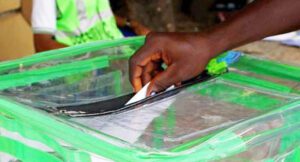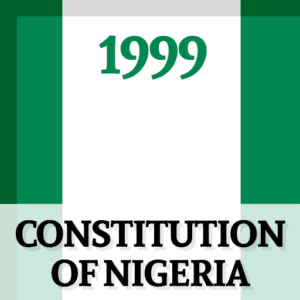Legislative summons: Saying no to rubber-stamp assemblies
Proper political communication is a key phenomenon which remains germane to the defining character of the workings of democratic climates. The subject borders on giving expression to virtually every standing pillar of the tenets of democracy. Such principles of responsiveness, accountability, openness and transparency are core tenets of democracy which expounding expression find reflection in the instruments of properly informed political communication. The shortfall in the understanding of the significance of proper political communication creates breaching grounds that set in lacunas bearing strings of political heat capable of destabilising any given entity.
When the administrative patterns of running the polity is manhandled with gaps that leave citizens doubting the sincerity of the system, it becomes difficult to get the masses along with the sense of belongingness in the atmosphere of collaborative efforts key to national development. The tool of questioning subjects of concern which run along the lines of obliviousness is one tenet which arouses the sense of democratic atmosphere tending unto upward political-culture development. The orientations of open and constructive criticisms remain key instruments permitted under democratic systems to check against political and administrative errors of any government in power. The orientation of the systemic ideology of democracy as the Government of the people themselves run by their own chosen representatives, speaks to the opening of the stage to wide questioning by the people who have set in the Government to man the workings of state apparatus for the commonwealth of all.
Under such atmosphere, constructive questioning of orders and status quo are expected to be embraced with civility accompanied with explanation given by any concerned authority in question, to clear perceived grey areas and points of attention raised by the public. In Nigeria, the subject of openness and accountability are arms of the democratic system whose ideological expression have largely been on the less desirable radar of thought. Over time, response and reactions to questioning-observations raised on gaps bearing obscurity, particularly with administrative defaults, have been visited with hostility against the civil orientation of proffering informed explanation to bring grey areas to limelight of clarity. It has been argued from some angles that the negative reactions of public officers to points of observations, questioning their offices on critical subjects, are manifest lack of civil understanding of administrative working patterns. From other angles, such hostile reactions are only reflection of the outcome of impulsive moves of bellicose resort to cover up acts of misdeeds, corruption or deficiencies.
On Monday, the Public Accounts committee of the House of Representatives, flagged an invitation call to the Nigerian Minister of Finance, Budget and National Planning, Mrs Zainab Ahmed, and the Director-General of the Budget Office of the Federation, Dr. Ben Akabueze among other officials of the Ministry, to explain the rationale for granting duty waivers to some companies in the Country. Among the notable cases is one of the N468 million waivers allegedly granted to Saipem Contracting Ltd by the federal government. The Chairman of the committee, Rep Wole Oke (PDP-Osun) who directed the summon at the ongoing investigative hearing on audited accounts of government Ministries, Departments and Agencies (MDAs) and some private companies in Abuja, directed that the Minister and the DG should appear within seven days to clear the air on the duty waivers granted to Saipem Contracting Ltd on N468 million worth of equipment and other items it imported into the country.
He was quoted, “Why can’t we ask the Minister and the DG to give us a comprehensive list of waivers granted these companies within 14 days. We should also invite the beneficiary companies that got waivers. I want to see these items and the value of the duties paid on them.” The lawmaker who had earlier noted that some of the invited companies had submitted that they have import duty exemption, however, demanded that the invited companies avail the committee the description of imported machines, value of invoices and country of importation.
He further directed the committee clerk to write to the federal ministry of industry, Nigeria Customs Service (NCS) and the Nigeria Immigration Service (NIS) to respond to issues that concern them.
The necessity for all concerned offices, particularly public, to respond properly to legislative summons is imperative in the light to sustain the culture of democratic sanctity. This is important to provide Nigerians with succinct explanations, clear enough to wipe off all doubt in the light of informed justification towards understanding the reasons for the unexplained lacuna. It is high time all political office holders and public officials were armed with the understanding that they hold their respective offices by the sovereignty of the people; and therefore holding every iota of resources and responsibilities in proxy for the masses. Such understanding is essential to assume the line of responsive thoughtfulness to make the processes of governance open to the general public for proper understanding, against shrewdishly enclaving same in obscurity.
More so, duty beckons strongly on the National Assembly and the various State Assemblies in the Federation, to become more responsible in their duties as the representatives of the people in serving as an institution of checks and balances as required under a democratic set up. The necessity for the Assemblies to respectively wake up to their duties is paramount to navigating the thriving gear of democratic practice in Nigeria. The phenomenon of having a rubber-stamp legislative only acting in proxy and support of executive maladministration, is a defective tendency which has negatively constrained democratic experience in Nigeria. The debilitating effects have left lacunas which have continued to pitch the Country to the precipice of collapse. It is therefore essential for the legislative bodies from the Federal to the State Assemblies to awake to their responsibilities by sincerely questioning more cases of executive lapses in the piloting of state affairs. Against the norm of having rubber-stamp legislators, it is imperative for constituents to begin to put their representatives in the various assemblies on their toes with constructive questioning of every seeming lacuna perceived as unwholesome defects in the running of governance. This is paramount in building robust political culture needed to vitalise Nigeria’s infantile democratic practice.




